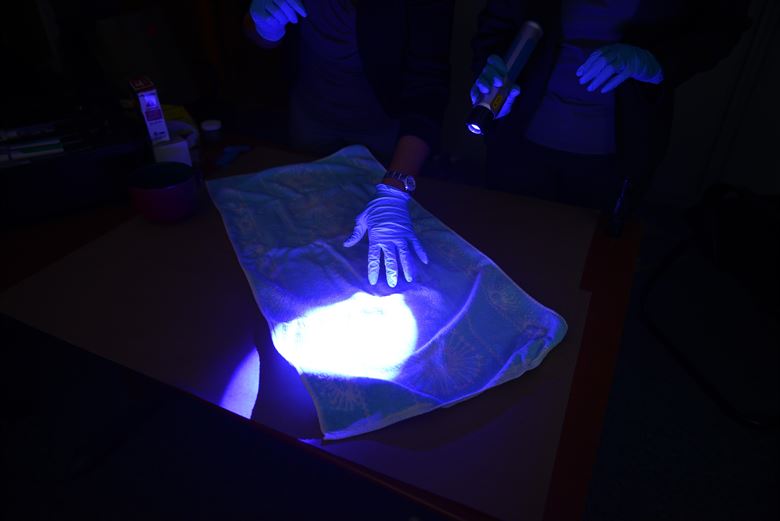Murder in Italy: laws, aggravating circumstances and penalties
The crime of murder (homicide) is governed by Article 575 of the Criminal Code, which reads:
“Anyone who causes the death of a man is punished with imprisonment of not less than twenty-one years”.
Recent news has affected Amanda Xnox and Raffaele Sollecito, for the murder of Meredith Kercher. Originally charged with aggravated voluntary homicide, now the two were arrested.
But, let's look at the crime in details.
The legal asset that the aforementioned law intends to protect is the human life of the individual.
The active subject of the crime can be "anyone", even if, in some cases, for the purposes of configurability of the crime, it is necessary that the author holds a position of guarantee. In other words, the action carried out by the subject is considered a criminal case if he/she, due to legal obligation, ought to have prevented the injurious event but, on the contrary, does not provide for it (homicide by omission).
The passive subject, instead, is the living being (including the fetus), which coincides with the material object of the crime, that is, the human body on which the offensive conduct is put into being.
The essential elements for configurability of the crime are as follows:
- Subjective element, the malice, or the agent subject must have acted intentionally, foreseeing and accepting the consequences of his action / omission;
- Objective element, the death event.
The imputability of the crime is given by the existence of the causal link between the conduct of the agent and the death of the victim.
Murder in Italy: types of crimes
The Criminal Code, in dealing with the crime of murder, identifies several cases:
- Negligent murder, in accordance with Article 589 of the Criminal Code
Punished with imprisonment from 6 months to 5 years, the subjective element is the fault, or rather, the death event is not voluntarily caused by the agent but due to negligence, imprudence and inexperience, as well as for non-compliance with laws, regulations, orders or disciplines.
The aggravating circumstances may exist for the case. Think of the hypothesis in which the crime of culpable homicide was committed with violation of the rules for the prevention of accidents at work or with violation of the rules that regulate road traffic.
- Intentional murder, sanctioned by Article 575 of the Criminal Code.
The subjective element is the intention, as the offender acts with conscience and will.
The attempted murder is very frequent, that is when the event that follows does not cause the death of the passive subject.
- Traffic murder, having become an independent criminal offense since 2016, is regulated by Article 589 bis of the Criminal Code, which punishes, with imprisonment from 2 to 7 years, the action that arises from the behavior of the person who causes the death of a person due to the violation of the rules of the traffic laws.
- Unintentional murder (beyond intention), punished by art. 584 of the Criminal Code, is configured when the person takes direct actions exclusively to beat or cause personal injury to the victim, but unintentionally causing death. The penalty may be aggravated in the presence of the same circumstances as for intentional murder.
Consenting murder, occurs when one person causes the death of another by his expressed will. The expected penalty is imprisonment from 6 to 15 years.
Murder in Italy: aggravating circumstances
Article 576 of the Criminal Code identifies the aggravating circumstances, in the presence of which, the crime of murder is punished with life imprisonment.
In detail, when it is:
- committed to execute or conceal another offense, or to gain or secure for himself or others a product / profit / price or impunity (art. 61 paragraph 2, Criminal Code);
- brought into being against an ascendant or descendant, for abject or futile reasons, or by using torture, cruelty, or premeditation;
- by the fugitive or the associated criminal, to avoid arrest, capture or imprisonment, or to obtain the means of subsistence during the inactivity;
- on the occasion of some crimes, such as, mistreatment of family members and cohabitants, child prostitution, possession of pornographic material, sexual violence, sexual acts with children and sexual violence in group;
- by the author of persecutory acts or stalking (article 612 bis of criminal code), against the same offended person;
- against an officer or agent of the police authorities or the public security, in the act or because of the performance of his duties.
Murder in Italy: unintentional murder
Provided for by the art. 584 of the Criminal Code, the crime of unintentional murder is configured when the action or omission of the agent causes a dangerous event, more serious than that desired.
The foreseen penalty is imprisonment from 10 to 18 years, except for the aggravating circumstances applicable to the case.
The protected legal asset, with the aforementioned provision, is life and the general interest of the State to protect it.
It is not to be confused with the crime of “death or injury as the consequence of another crime”, as according to art. 586 of the criminal code, since the first is configured when the death event or the lesions are due to beatings or injuries which, unintentionally, cause death.
In the second crime it is necessary that the harmful event constituted by death and lesions, is not wanted even indirectly or with malicious intent from the agent.
The latter is contemplated by Article 83 of the criminal code (event different from that wanted by the agent), but the penalties established by Articles 589 and 590 have increased.
Do you want to get in touch with our studio? Contact us by clicking here.


